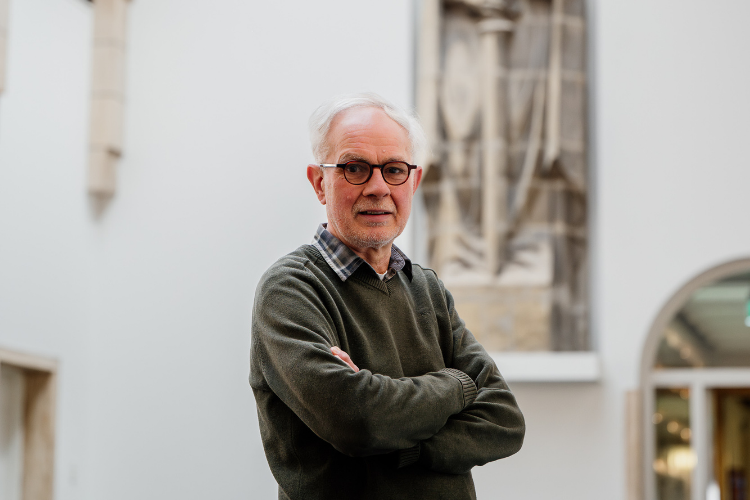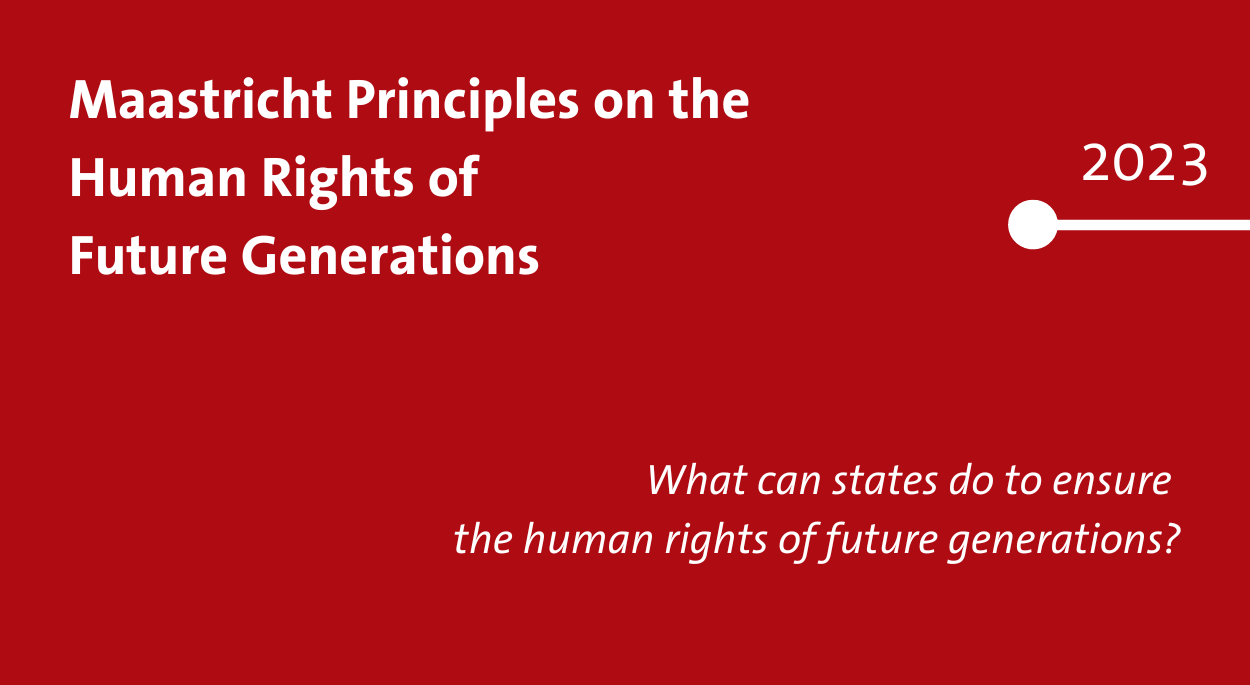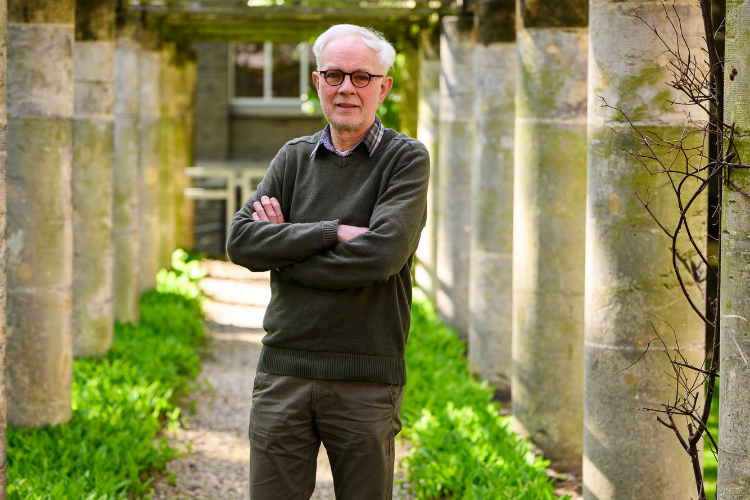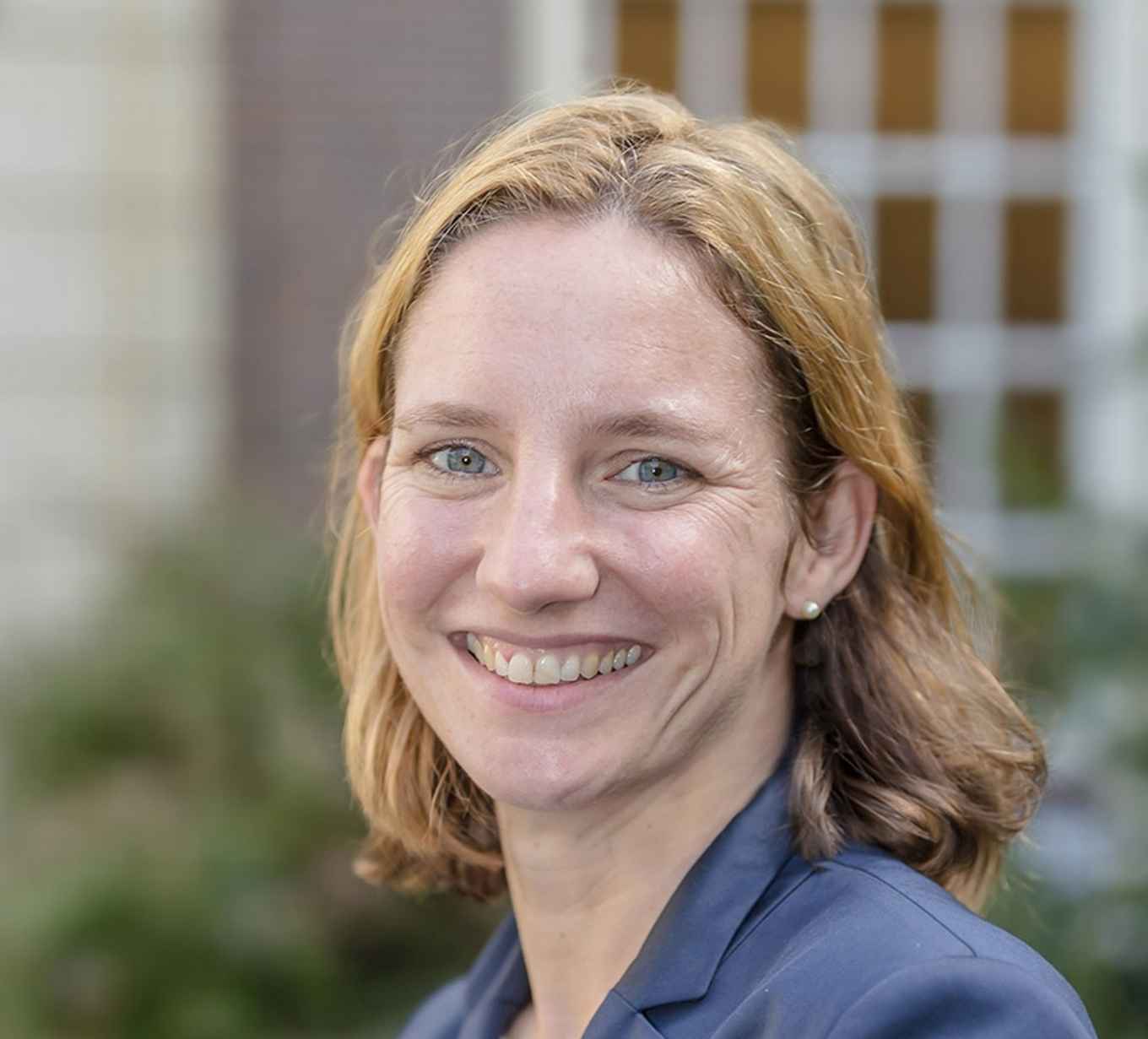Everyone has a voice. Including future generations.
Climate change, depletion of natural resources, environmental pollution... Consciously and unconsciously, we burden future generations with problems because we created a mess. But, how can you consciously take this into account if this group has no rights? Fons Coomans drew up a guideline together with a group of scientists and experts in the field of human rights.

Fons Coomans is anything but an unknown face at the Faculty of Law. As endowed professor in human rights at the UNESCO Chair in Human Rights and Peace, he taught for many years. He was also chairman of the science committee and director of the Maastricht Centre for Human Rights. “A lot of research is conducted within this research institute in the fields of socio-economic and cultural human rights. For example, the right to food, housing, education, work and health,” Fons begins to tell. “What does the right to these things mean? How do you give this legal substance? And who has the obligation to shape that right? Those kind of questions keep us occupied.”
Over the years, this research resulted, among other things, in four expert opinions. These elaborate on existing human rights as laid down in the Universal Declaration of Human Rights and human rights treaties. This is called progressive development of the law. To this end, the research institute collaborated with, among others, the International Commission of Jurists (ICJ), the Food First Information Action Network (FIAN) and the Centre for International and Environmental Law (CIEL). These expert opinions were picked up and used in practice by various international scientists, NGOs, judges and United Nations bodies.





Expert Opinions by MCfHR
Together with a group of experts in the field of human rights, the Maastricht Center for Human Rights has drawn up a number of expert opinions over the years. Which are these? And what important question do they answer?
Click through the slides for more information.
Representation of next generations
The most recent expert opinion is the Maastricht Principles on the Human Rights of Future Generations, which, as the name suggests, focuses on the rights of future generations. Since it was presented in February 2023, more than 75 human rights organisations, experts and scientists have endorsed it. “A number of social developments inspired us to take up this exercise: climate change, depletion of natural resources, environmental pollution, the risks of nuclear incidents or nuclear war... What kind of threat do these and other developments pose for generations to come?” Fons explains. “There is little about the rights of future generations in existing international law. And why? Because these do not exist yet, they have yet to be born.” If you don't exist you have no rights. At least, according to the traditional way of looking at it. These Principles aim to guarantee the rights of future generations now, for example through representatives.
Because they themselves cannot influence the decisions that are made now. Fons outlines the following example: “We, the current generations, do not have a good solution for the storage of nuclear waste. Yet the Dutch government wants to build two new nuclear power stations. We put the waste in concrete containers, far underground. We don't worry about it anymore. But what if earthquakes occur hundreds of years from now, causing those containers with nuclear waste to leak? Future generations are saddled and confronted with danger over which they had no say.”
States and governments should not be allowed to get away with this, Fons believes. Fortunately, in some places in the world these generations do have a voice, even if it is indirect. Fons takes Wales as an example, which has a kind of Ombudsman especially for future generations. This Future Generations Commissioner ensures that policymakers are aware of the impact their decisions have in the long term. There is also such an Ombudsman in Hungary. Another example are the American indigenous groups, who use a 7th generation principle. “This means that the decisions you make now must still have meaning and be sustainable seven generations from now. A wonderful source of inspiration,” says Fons.
A Dutch initiative is the Lab for Future Generations. It is committed to the interests of future generations and wants to influence the social debate. “Environmental organisations are also getting involved in this. A well-known example of this is Urgenda, which took the Dutch state to court a few years ago because they were not doing enough to reduce greenhouse gases,” says Fons. “They won the case. The judge has also recognized that Urgenda may represent people who do not yet exist.”
The story continues after the photo.

"We have not been the best ancestors, but we have tried to make the best of it. I am very happy that we as a Law Faculty can contribute to this with research and are known for this throughout the world, not just in Europe."
Inspiration for others
Things are slowly moving in the right direction, but there is still a long way to go. “Politicians have a tendency, and they know it themselves, to think about the short term. Not further than the next elections, which are four or eight years away,” Fons explains. “Another problem is that politicians have too little knowledge about the issues at hand. That is why we hope that they will make more frequent use of the results of scientific research and are prepared to translate this into practice. This still happens too little.”
Fortunately, the United Nations has already included the expert opinions of the Maastricht Centre for Human Rights in various documents over the years. “In that context, there is another interesting development: this year, the United Nations is organizing The Summit of the Future in New York. A political declaration and a Declaration on the Future Generations are drawn up there,” Fons explains. “When we heard about this, we contacted UN diplomats in New York and recommended our Principles. We recently saw a first version of the Declaration and it shows that we have inspired them.”
Global contribution
In any case, there's no shortage of effort from Fons and his fellow researchers. How does he hope that our generation will be looked back on in a hundred years? Fons: “I hope they come to the conclusion that we have taken responsibility, albeit belatedly. We have come to realize that our way of life must change. We have not been the best ancestors, but we have tried to make the best of it. I am very happy that we as a Law Faculty can contribute to this with research and are known for this throughout the world, not just in Europe.”
The text of the Maastricht Principles can be read via www.rightsoffuturegenerations.org.
Also read
-
The competition is open to all students registered for a LLM programme in Maastricht who submits their thesis in the academic year 2023-2024.
-
On 6 June 2024, the Globalisation & Law Network held a seminar featuring Dr. Christina Eckes, Professor of European Law at the University of Amsterdam.
-
On 22 May 2024, the Globalisation & Law Network had the pleasure of welcoming Professor Ulf Linderfalk, who presented his monograph 'The International Legal System as a System of Knowledge' (Edward Elgar, 2022).

